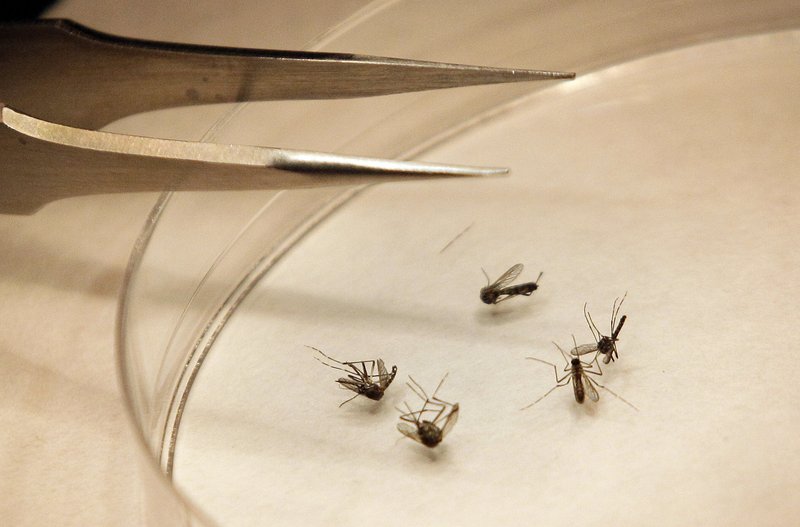People may be wondering why the familiar sounds of “Bzzzzzt … Slap!” have moved from being merely annoying to becoming a serious threat to public health.
The answer is blood. Mosquitoes love it, and they have no problems feeding themselves on any species that has it.
So when a sick bird or animal has a disease that humans can catch — and there are lot of them, from Lyme disease to West Nile virus to Rocky Mountain spotted fever to Eastern equine encephalitis to malaria (that last one’s not anywhere near here, thank goodness) — mosquitoes, ticks and other blood-sucking insects are “vectors” that are perfectly suited by nature to do the job of passing it on.
So, with Lyme disease seemingly lurking behind every blade of grass, and West Nile virus being found in more and more towns in York and Cumberland counties, those of us fondly known as “prey” by the bugs that bug us wonder what to do. Fortunately, disease control specialists have plenty of advice to offer, although “stay indoors all the time and never open a door or window” is of limited utility for most of us.
More practical measures include wearing long pants, shoes and socks; using one of any number of repellents, either natural or from a lab; checking oneself after coming indoors for insects; and being aware of the signs and symptoms of insect-borne illnesses so medical advice can be sought as soon as it seems appropriate.
Of course, the bugs have spent millions of years specializing in al fresco dining, and it’s just too bad warm-blooded creatures like us are at or near the top of their menu.
Still, failing to do what we can and should do simply makes us more vulnerable. In the war between humans and bugs, eternal vigilance is the price of (reasonable) freedom from disease.
Copy the Story Link
Send questions/comments to the editors.



Success. Please wait for the page to reload. If the page does not reload within 5 seconds, please refresh the page.
Enter your email and password to access comments.
Hi, to comment on stories you must . This profile is in addition to your subscription and website login.
Already have a commenting profile? .
Invalid username/password.
Please check your email to confirm and complete your registration.
Only subscribers are eligible to post comments. Please subscribe or login first for digital access. Here’s why.
Use the form below to reset your password. When you've submitted your account email, we will send an email with a reset code.